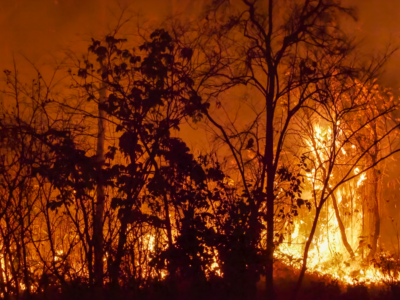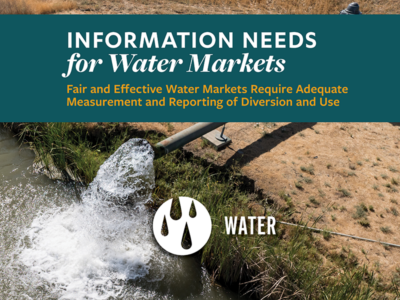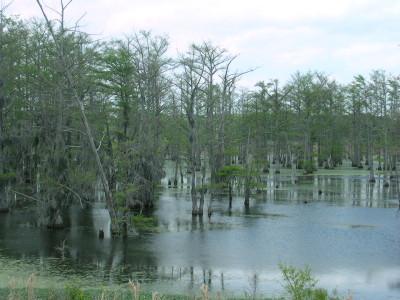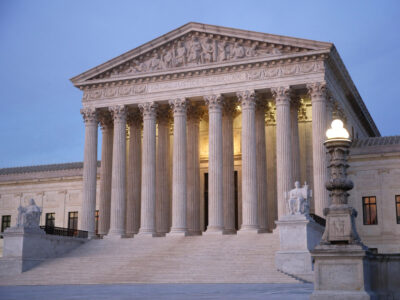Property Rights
Wildfire Liability in California: A Primer
California has a unique approach to lawsuits against utilities for causing fires.
Like other states, California allows wildfire lawsuits against utilities based on negligence. When a plaintiff can prove that the utility was negligent – in other words, failed to exercise reasonable care – plaintiffs can recover for environmental damage, reforestation costs, and loss of profits. But California also allows recovery even when a utility did nothing wrong, under a theory called inverse condemnation. The PG&E bankruptcy made it clear that no-fault utility liability could threaten the financial health of the power system. The legislature created a new fund to deal with the problem.
CONTINUE READINGRegulatory Rollbacks: What to Expect
A replay of 2017? Or maybe something more radical? You can probably guess the answer.
Repealing and replacing existing environmental regulations will have a lower priority in this iteration of the Trump presidency – it will often be easier to just ignore the existing regulations or eliminate the regulators rather than the regulations. When it does rollback regulations, the administration will probably take more extreme legal positions and will be more likely to make constitutional arguments against environmental regulation.
CONTINUE READINGWhat policies lead to greenhouse gas emissions declines?
A recent study emphasizes the role of policy mixes in driving short-term emissions reductions
In a series of posts (beginning here, and ending here) last month, I outlined an approach to climate policy that emphasizes the role of subsidies in building political support and technological progress for climate policy. In doing so, I drew heavily on existing political science research and case studies from North America and Europe. But …
Continue reading “What policies lead to greenhouse gas emissions declines?”
CONTINUE READINGThere are Piles of Coal in America’s Christmas Stocking
Coal is piling up, unused, at powerplants across the country
Bad children, supposedly, will get only lumps of coal in their stockings. That could be taken as a metaphor for the anti-environmental programs coming down the line, but I have in mind something a bit less metaphorical. According to a recent report, coal-fired power plants have immense piles of coal – 138 million tons, equal …
Continue reading “There are Piles of Coal in America’s Christmas Stocking”
CONTINUE READINGSix Things to Know about Rights of Nature
More than 500 Rights of Nature laws and policies have been passed globally. Here’s how to make sense of this nascent movement — or movements.
This Fall, I have been co-teaching a course on Rights of Nature with the historian Jill Lepore. This is the first time either of us have taught the subject and it has proven a wonderful opportunity to explore with our students this emerging movement — one that some have praised as “A Legal Revolution That …
Continue reading “Six Things to Know about Rights of Nature”
CONTINUE READINGWhat’s at Stake in the ICJ Hearings
Representational sovereignty, Indigenous rights, and ecocide are all key to the climate obligations of states, write guest contributors Mollie Cueva-Dabkoski, Julia Phượng Nguyễn, and Molly-Mae Whitmey.
A new chapter of global climate accountability has hopefully begun, as the International Court of Justice (ICJ) prepares to issue an advisory opinion on the Obligations of States in respect of Climate Change. Hearings for that opinion began today with over 100 countries and other parties presenting over two weeks. At the request of the U.N. …
Continue reading “What’s at Stake in the ICJ Hearings”
CONTINUE READINGMeeting information needs for water markets: Understanding water diversion and use
New CLEE report examines a prerequisite for fair and effective water markets
by Nell Green Nylen and Molly Bruce Water scarcity is a growing problem for agriculture and ecosystems across the U.S. Southwest. In many areas, unsustainable water use has overstretched local water supplies, and climate change is making these supplies more volatile. Water markets have the potential to enhance climate resilience by helping water users adapt …
CONTINUE READINGTemporary Takings and the Adaptation Dilemma
Current law penalizes adaptation measures because of the risk of takings liability.
Is it unconstitutional for the government to build a levee that reduces the risk of urban flooding but diverts the water to nearby farmlands? The answer could be yes, unless the government pays for flood easements on the rural lands. But if the government doesn’t build the levee, it faces no liability from the urban …
Continue reading “Temporary Takings and the Adaptation Dilemma”
CONTINUE READINGU.S. Supreme Court Revisits, Tightens Regulatory Takings Limits on Land Use Regulation
California Homeowner’s Takings Challenge to County’s Traffic Impact Fee Heads Back to State Court
On April 12th, the U.S. Supreme Court revisited a constitutional doctrine near and dear to its institutional heart: when and under what circumstances does a land use permit condition violate the Fifth Amendment’s Takings Clause? In yet another “regulatory takings” case from California, the Supreme Court wound up not answering that precise question. Instead, the …
CONTINUE READINGThe U.S. Supreme Court & Environmental Law in 2024
Numerous Key Environmental Issues and Doctrines Will Confront the Justices This Year
As we begin 2024, it’s useful to identify and assess the many environmental issues that the U.S. Supreme Court has agreed to decide this year. It seems likely that the conservative majority of the justices will erode or, perhaps, dramatically jettison longstanding principles of environmental law and policy in the coming months. Summarized below are …
Continue reading “The U.S. Supreme Court & Environmental Law in 2024”
CONTINUE READING











